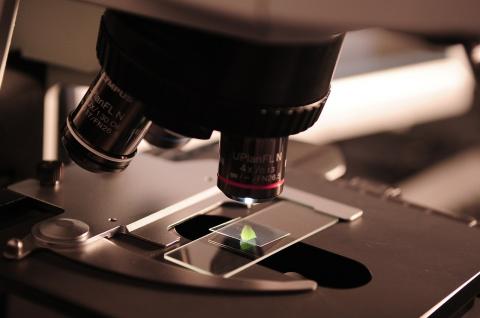New potential diabetes treatment regenerates insulin-producing cells

By Michael Irving NEW ATLAS
Diabetes is characterized by issues with insulin, the hormone that regulates blood glucose levels and allows the body's cells to access it for energy. In type 1 diabetes, beta cells in the pancreas that normally produce insulin can't make enough to meet demand, often because those cells have been destroyed by the immune system.
Treatment currently relies on administering insulin shots, but an emerging branch of study centers on finding ways to replenish the insulin production of those beta cells. Previous breakthroughs have included creating artificial beta cells that can pick up the slack, or using stem cells to grow new ones.
In the new study, researchers at the Karolinska Institutet in Sweden examined a small molecule that may help regenerate beta cells. The molecule, known as CID661578, was identified in previous work, but how exactly it worked and to what extent remained unknown.
To find out, the team examined its molecular interactions in yeast cells, and found that it binds to a protein called MNK2. In doing so, it allows two other proteins to interact at higher levels, which ultimately leads to greater beta cell regeneration.
The team tested their molecule in zebrafish, and found that it lowered blood glucose levels when compared to a control group. In pig pancreas cells grown in the lab, the molecule was shown to trigger the formation of new beta cells, while human pancreas organoids given the molecule produced more insulin.
“Our findings indicate a new potential target for treating diabetes, in that we demonstrate a possible way of stimulating the formation of new insulin-producing cells,” says Dr. Olov Andersson, last author of the study. “We’ll now be studying the effect of this and similar molecules in human tissue and analyzing the molecule’s target protein, MNK2, in tissue from healthy donors and donors with diabetes.”



























